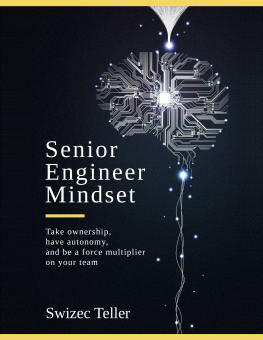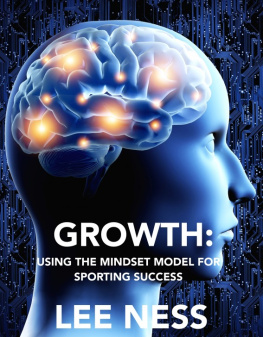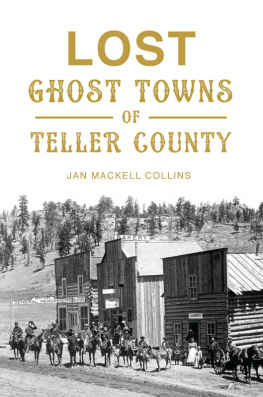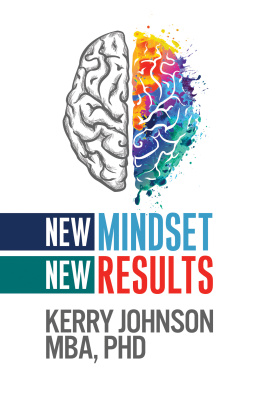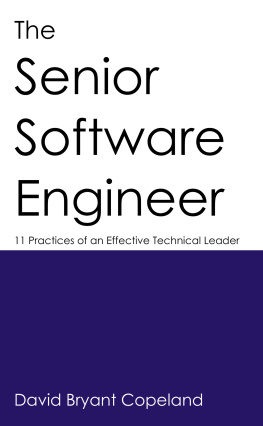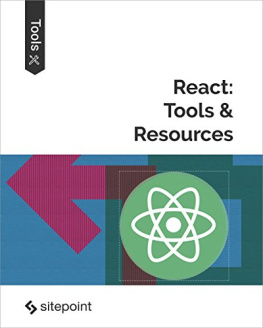Swizec Teller - Senior Engineer Mindset
Here you can read online Swizec Teller - Senior Engineer Mindset full text of the book (entire story) in english for free. Download pdf and epub, get meaning, cover and reviews about this ebook. genre: Business. Description of the work, (preface) as well as reviews are available. Best literature library LitArk.com created for fans of good reading and offers a wide selection of genres:
Romance novel
Science fiction
Adventure
Detective
Science
History
Home and family
Prose
Art
Politics
Computer
Non-fiction
Religion
Business
Children
Humor
Choose a favorite category and find really read worthwhile books. Enjoy immersion in the world of imagination, feel the emotions of the characters or learn something new for yourself, make an fascinating discovery.
- Book:Senior Engineer Mindset
- Author:
- Genre:
- Rating:3 / 5
- Favourites:Add to favourites
- Your mark:
- 60
- 1
- 2
- 3
- 4
- 5
Senior Engineer Mindset: summary, description and annotation
We offer to read an annotation, description, summary or preface (depends on what the author of the book "Senior Engineer Mindset" wrote himself). If you haven't found the necessary information about the book — write in the comments, we will try to find it.
Senior Engineer Mindset — read online for free the complete book (whole text) full work
Below is the text of the book, divided by pages. System saving the place of the last page read, allows you to conveniently read the book "Senior Engineer Mindset" online for free, without having to search again every time where you left off. Put a bookmark, and you can go to the page where you finished reading at any time.
Font size:
Interval:
Bookmark:
Dear reader,
Before you is a collection of essays written over my first few years in Silicon Valley. They catalog the shifts in mindset that lead to my biggest career growth. More autonomy, responsibility, rewarding challenges, and money.
I hope they help you too.
~Swizec
Remember when you started your job, how was it?
Let me guess: the sheer amount of new things to learn was overwhelming, you felt out of your depth, and your calendar was open and free after the first week of onboarding activities.

Best part of starting a new job my friend You get to work. Its wonderful.
Imagine a typical workday for a new team member:
- 10:00am standup
- 10:15am work on tickets
- 11:00am quick chat to ask a question
- 11:15am - work on tickets
- 12:00am lunch
- 12:30am work on tickets
- 15:00pm - review PRs
- 15:30pm - break
- 16:00pm - work on tickets
- 18:00pm - done for the day
8 hour block of time, 30 minutes of meetings, 30 minutes of PRs, a whole lotta coding.
A good manager will put you on one long project. Its the best way to learn.
Get a big project and do it. Youll explore the system, figure out how pieces move together, and have a common thread to guide you.
New junior engineers get to work on parts of the same big project over weeks and months. New senior engineers do the whole thing.
Both are valid.
Now imagine what a typical day looks like for a seasoned engineer my friend.
- 10:00am - standup
- 10:15am - unblock Susan
- 10:30am - meet with product manager
- 11:00am - quick chat to answer Bobs question
- 11:15am - answer PMs followup question
- 11:30am - code reviews
- 12:00am - lunch
- 12:30am - 1-on-1 to welcome new team member to team
- 13:00pm - 5 slack threads of questions
- 13:30pm - production bug
- 13:45pm - unblock Joe
- 14:00pm - meet with head of engineering
- 14:30pm - write tech specs for next months project
- 15:00pm - quick chat with PM to clarify something
- 15:15pm - continue writing specs
- 15:45pm - unblock Alice
- 16:00pm - work on tickets
- 16:15pm - notification in #bugs channel
- 16:20pm - work on tickets
- 17:50pm - catch up on Slack threads
- 18:15pm - done for the day
8 hour block of time, 2h45min of meetings, 45min of writing tech specs, and an hour of coding. Never more than 30min of focus time.
And thats why senior engineers get nothing done. Theyre too experienced and know too much.
You start with writing code and delivering fantastic results. Youre killing it and everybody loves you! Rock on.
Then your code hits production.
All code has bugs, yours too my friend, I promise.
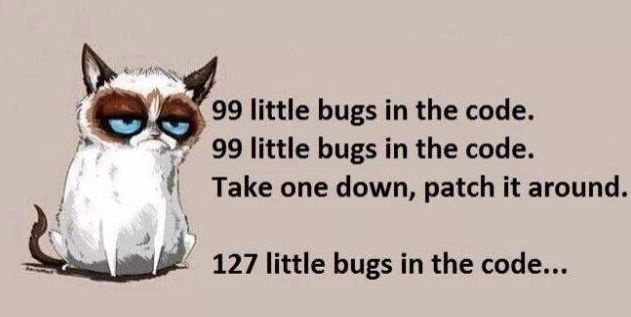
As a professional software engineer, you maintain this code. You are the owner.
When a bug happens in production, you look into it. You figure out who best can solve it. Could be you, could be an upstream or downstream system. You ensure the bug gets fixed.
That means you are in charge of communicating with whomever stepped on the bug. Tell them you saw, loop them in when its fixed, offer a workaround for right now.
As your knowledge of the system grows, your job shifts from that of writing the code to that of force-multiplying others.
You can make others faster.
When Susan hits a problem, she can spend 3 hours Googling for a solution, or 5 minutes asking you. When Joe cant understand a module, he can spend a day digging through the code, or 5 minutes asking you.
20 minutes of your time to save 7 hours for the team.
Your company will make that tradeoff every day. $40 of your expensive time for $420 of everybody elses time? Yes please.
When you complain you cant get anything done

Make sure your boss understands and values your force multiplier work!
Ive been in situations where all this was expected, but only writing code was valued. That sucked.
Do not become that ass who doesnt answer questions or help their team!
You can use 2 broad strategies to protect your time:
- Timeboxing
- Optimization
Timeboxing is the strategy of blocking off your calendar for specific types of tasks.
For example I have a meeting with myself every afternoon. 3pm to 6pm is coding time. My calendar appears blocked off and no meetings get scheduled.
When you do have meetings, schedule them all in the same part of the day. Back to back.
Nothing worse than a 15min stretch of time between 2 meetings. Too long to waste, too short to do anything.
Same goes for Slack and email.
Have a time in the day where you go through all of slack. Ignore notifications and questions for an hour, then answer everything in 15min.
I find this hard to do but its good advice to give.
Configure Slack so it never creates notifications and only dings when you are mentioned or DMd. Its how you stay sane. Remove all other notifications. Keep your computer in DoNotDisturb mode.
The fewer pings you get, the easier it is to ignore everything until your question-answering timebox.
Do not expect immediate replies, do not give immediate replies. Let questions accumulate
How can you answer more questions faster?
Documentation my friend.
Nobody reads documentation do they? Out of date, hard to find, impossible to understand without context. Easier to ask.
Heres what you do:
- Someone asks a question
- Answer
- Take 5min to write down your answer
- Share publicly
Next time you get the same question, do this:
- Find your answer
- Spend 30sec validating its correct
- Send link
With time folks learn to check documentation first. If they dont, youre saving time by sharing pre-packaged answers.
Saving answers to your questions helps you too. 6 months from now, you wont remember why or how you did something. Look it up in your notes. Make the notes searchable and shareable.
Another optimization is asking good questions.
Problem with a library or framework? Google it.
Problem with our code? Ask.
Problem with how were holding a library or framework? Ask.
This is why you should avoid inventing everything from scratch and use public open source libraries. The more your team can learn from public resources, the less work for your seasoned engineers.
After that heuristic comes this magic question format:
Can you help me with this problem? Who is the best person to ask? Heres what happens and this is what I expected to happen. I have tried X, Y, and Z to resolve the issue. I will be blocked by this in N minutes.
Font size:
Interval:
Bookmark:
Similar books «Senior Engineer Mindset»
Look at similar books to Senior Engineer Mindset. We have selected literature similar in name and meaning in the hope of providing readers with more options to find new, interesting, not yet read works.
Discussion, reviews of the book Senior Engineer Mindset and just readers' own opinions. Leave your comments, write what you think about the work, its meaning or the main characters. Specify what exactly you liked and what you didn't like, and why you think so.

